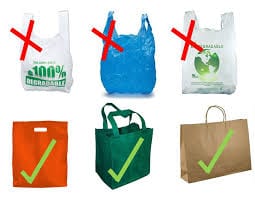As we start to think summer, what are your plans?
Personally, we are planning a few day trips / long weekends. One day trip in the works is to a concert that’s about 2 hour drive each way. This takes some planning – checking out the route and plans for the concert – tickets, parking, the location, etc. Our weekend away is for later in the summer, this involves more planning as it’s out of state to an event. Nver the less, planning comes into play here as well.
With all our plans (and whatever you are planning) for this summer, here are some tips for that road trip from The Hartford for everything from a day trip to driving in a foreign county to prepare yourself and your car to be able to plan ahead.
You need to consider – route maps, lodging, gas, lodging, admission fees, parking and more to work with your budget. Options is what it’s about. For example, route maps have come a long way from the paper maps to GPS to phone navigation apps – all are good choices, but require planning. What’s your preference? Doing your research ahead of time, helps you plan your finances and helps you to stay within your budget.
I’ll keep you posted on our summer adventures. So what’s on your bucket list for this summer (and beyond)?
 list is a big list of names (individuals, companies, non-profits and more), that each state maintains from institutions that turn over money to them. You may be asking why would an institution turn over your money to the state? Good question, these are funds from accounts that haven’t had any activity in several years. Here are a few examples:
list is a big list of names (individuals, companies, non-profits and more), that each state maintains from institutions that turn over money to them. You may be asking why would an institution turn over your money to the state? Good question, these are funds from accounts that haven’t had any activity in several years. Here are a few examples:

 Well surprise – I didn’t. I started the porting process on a Friday afternoon and the number ported by Monday afternoon (2 business days)!. So that was great because it was fast. It was bad because it wasn’t easy to set up the new device. I’ll be honest with you, currently it’s set up wired. I haven’t been able to connect the wireless setting to this date. But the phones and voicemail work!
Well surprise – I didn’t. I started the porting process on a Friday afternoon and the number ported by Monday afternoon (2 business days)!. So that was great because it was fast. It was bad because it wasn’t easy to set up the new device. I’ll be honest with you, currently it’s set up wired. I haven’t been able to connect the wireless setting to this date. But the phones and voicemail work!

 In our
In our  wer arguments about who spent money on what and who overdrew the bank account. Others choose to handle their money and debts together, and they do just fine. The choice is yours.
wer arguments about who spent money on what and who overdrew the bank account. Others choose to handle their money and debts together, and they do just fine. The choice is yours. ow about saving for …. (insert goal such as paying for college, a car, home, vacation) all the way to financial independence.
ow about saving for …. (insert goal such as paying for college, a car, home, vacation) all the way to financial independence.